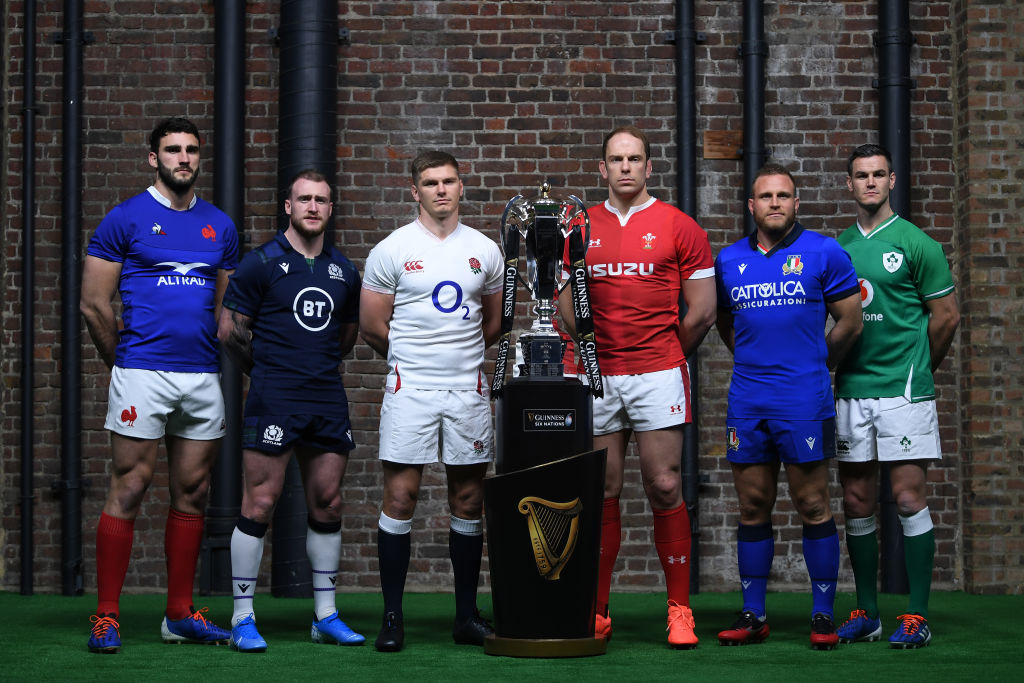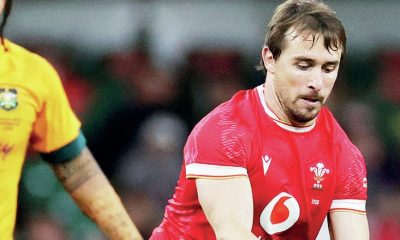
The Six Nations is in ‘very real danger’ of vanishing from free-to-air television under the terms of a new deal valued at an unprecedented minimum price of £300m.
Tenders for live rights to a bumper package of more than 100 international matches close before the tournament’s climax on March 14 with Sky favourites to win the biggest contract in rugby history.
BBC and ITV, whose live coverage of the 15-match championship runs out in 12 months’ time, joined forces to outbid Sky when the rights were last up for grabs in 2016. They had been prepared to do so again but have been told that no joint bid will be allowed.
The Rugby Paper understands that no reason has been given for imposing such a condition. It will increase fears of every big match in the UK and Ireland disappearing behind a pay wall from next year until 2024 at the earliest.
“By ruling out any joint bids it’s almost as if the Six Nations are clearing the way for Sky,” one industry source said last night. “There is a very real danger that they will be prepared to sacrifice the mass audiences on BBC and ITV for more money.
“Cricket did that and the popularity of the sport suffered as a consequence. If rugby chooses not to learn from that mistake, then they will be at risk of suffering the same consequence from the same lack of exposure.”
Six Nations Rugby Ltd, composed of senior figures from the English, French, Irish, Italian, Scottish and Welsh Unions, has averaged around £50m-a-year from BBC-ITV. They now aim to double their money by selling rights to the autumn Test series and pre-World Cup warm-ups in the same package.
BT and Amazon are also potential bidders.
The new contract will take effect from Nov 7 next year when Wales host Fiji, the first of almost 30 Tests scheduled for the month. Ireland and France home matches are excluded until autumn 2021 because of current agreements with other broadcasters.
England‘s autumn schedule, announced by the RFU on Friday, has been arranged to suit television which explains why Argentina at Twickenham will kick off at 8pm on a Saturday night.
The Six Nations’ policy of pouring all top-tier matches into one pot instead of each Union doing their own deal coincides with CVC offering the Six Nations £300m for the commercial rights. It also coincides with a raft of packages being offered to television companies.
None of those choices will be available in the expected event of one broadcaster buying the rights to all 100 or so matches on offer over the three-year period as specified by Six Nations Rugby Ltd.
BBC has been screening rugby internationals live since the early 1950’s. Some 20 years later, they were understood to have paid the RFU £5,000 per match. The price now is nearer £5m.
The Six Nations now has to decide, if it hasn’t already done so, whether they can afford to sacrifice millions of viewers in return for millions more in cash from satellite television.
South Africa’s win over England in the World Cup final in Yokohama four months ago generated a peak audience on ITV of 12.8 million – the highest figure for any sports event since the FIFA World Cup the previous year.
Wales-England on BBC last year peaked at 8.9m compared to 8.1m on the same channel for the FA Cup tie between Manchester United and Chelsea over the same weekend.
The England-France potential title decider at the end of ‘Super Saturday’ in 2015 attracted a record viewership of almost 10m. Those are figures satellite television can only dream about.
Sky announced last month a 21 per cent increase in Premier League viewing figures, claiming an average of 3.36m for Liverpool-Manchester City last November.
PETER JACKSON


British and Irish Lions
Go with your boy for the British and Irish Lions, Lawrence Dallaglio tells Andy Farrell
























You must be logged in to post a comment Login